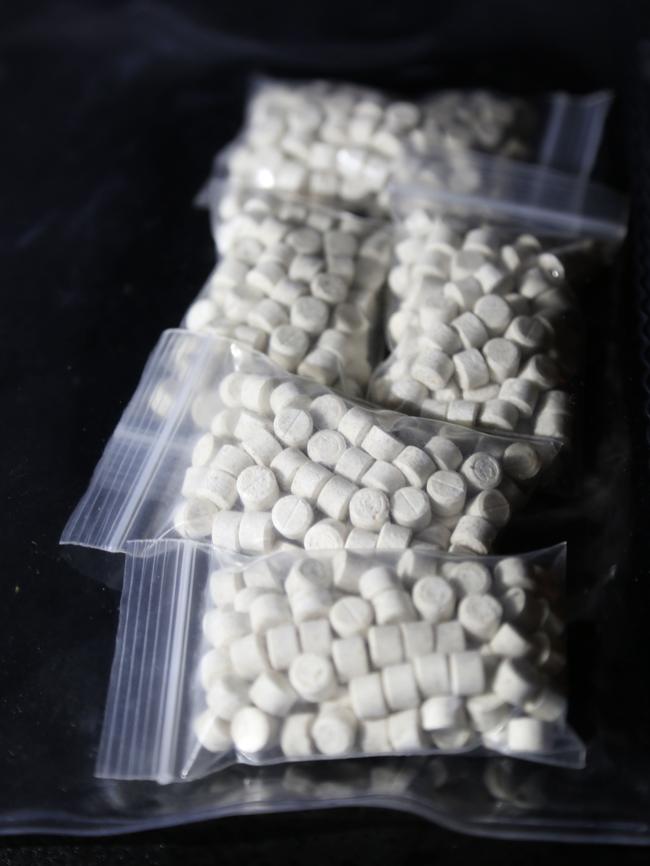Stereosonic 2015: Calls for testing of drugs at festivals following death of Syvia Choi
AUSTRALIA is in the midst of its most dangerous festival season and experts are calling for testing of illicit drugs at events to prevent another fatality following the death of Sylvia Choi.

NSW
Don't miss out on the headlines from NSW. Followed categories will be added to My News.
- Anna Woods’ dad: ‘My girl’s message is being lost’
- Social media takes aim at Stereo-types
- How music festival goers are smuggling drugs into venues
- Death and ecstasy: Young lives lost on Sydney’s dance floor
- Stereosonic guard ‘spent shifts partying, taking drugs’
A THIRD death at a dance party in as many months has led to growing calls for harm minimisation measures such as voluntary testing of drugs at festivals to prevent more fatalities.
Sylvia Choi, 25, died on Saturday after taking ecstasy at the Stereosonic music festival at Sydney Olympic Park. A further 120 people were treated for the effects of drugs and nine were hospitalised, including a 22-year-old woman who was placed in an induced coma.
Australian Drug Foundation’s national policy manager Geoff Munro said pill testing or drug checking was common at festivals in Europe and it was time to trial it in Australia.
FESTIVAL GOER SAYS 80 TO 90 PER CENT OF REVELLERS ON DRUGS
“Too many young people are overdosing on pills and other drugs, and while we might prefer that young people didn’t do that, it’s clear we can’t prevent some young people from continuing to take drugs,” Mr Munro said.
“Police are doing what they can but it’s clear that their efforts to prevent drug use are not succeeding, so in order to protect young people from the worst consequences of their drug use, we could introduce pill testing as a trial to see what the effect is.”

Mr Munro’s calls have been echoed by Canberra emergency physician and drug expert Dr David Caldicott who said Australia needed to take a more nuanced approach to illicit drugs.
“This is the most dangerous festival season we’ve ever seen in Australia, there is a diversity of unknown products on the market that not even drug nerds like myself know about,” Dr Caldicott told 7.30.
Australia ranks as the world’s biggest consumer of ecstasy in the United Nation’s 2014 World Drug Report and in the past 12 months, there have been five dance party drug deaths.
Few users know what they are taking when they consume illicit substances, and with the rise of synthetic drugs, the risk of overdoses, toxicity and allergic reactions together with the added danger of alcohol consumption are increasingly high.


In France, Belgium, Spain, Austria, Germany and Switzerland, pill testing is common at festivals with forensic equipment used to verify a drug’s strength and toxic elements.
Research from Austria found half of those who had their drugs tested said the results affected their consumption choices and two-thirds said they wouldn’t take the drug.
Mr Munro said testing was not a magic bullet, but research overseas suggested it was contributing to a reduction in overdoses, had helped drive some of the worst substances out of the black market and provided data about what recreational drugs were being consumed.
“We should test this (in Australia) to see whether it produces the benefits that have been found elsewhere. If it doesn’t produce those outcomes then we would try something else,” he said.

The legal implications of conducting such a trial are unclear, however Mr Munro envisaged it would be similar to the safe injecting room trialled in Kings Cross in 2001 and require endorsement from the state government.
“The drugs would remain illegal... there would be a protocol established and it would need the support of police to establish perhaps a drug testing facility on site,” he said.
Testing would determine what the drug was, its purity and the percentage of toxic or unknown elements, allowing the user to make a more informed choice.
He emphasised that testing was a harm minimisation measure designed to safeguard the health of people who take illicit drugs.
“To provide testing of pills doesn’t mean we’re giving up on all the other preventive elements,” he said.
“We shouldn't give up on encouraging people to avoid drug use because there is always a risk.
“In a sense this is a second-best outcome but all indications are it will save lives, it will save hospital visits by people and therefore will reduce a health burden on the system.”



